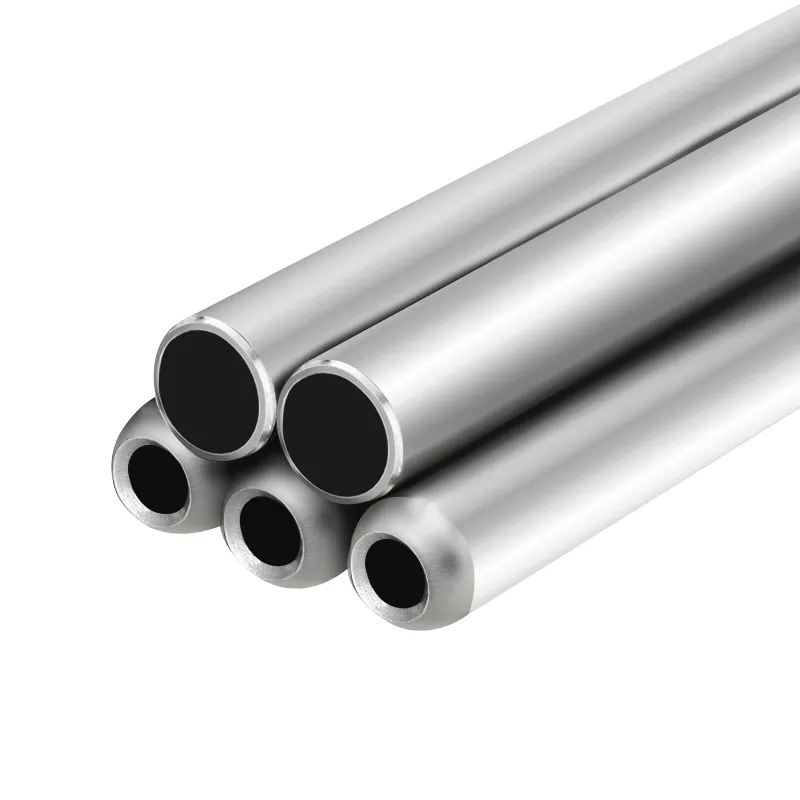High Precision Stainless Steel Tubing for Industrial Applications and Custom Solutions
Aug . 20, 2024 12:40
Precision Steel Pipe An Essential Component for Modern Industries
Precision steel pipes are critical components in various industries, including construction, automotive, aerospace, and oil and gas. Their unique properties, such as high strength, durability, and resistance to corrosion, make them ideal for applications that demand reliability and performance. This article explores the characteristics, manufacturing processes, and applications of precision steel pipes, highlighting their importance in modern industrial practices.
What are Precision Steel Pipes?
Precision steel pipes are specifically manufactured to meet stringent tolerances in dimensional specifications and mechanical properties. Unlike standard steel pipes, which might have varying thicknesses and diameters, precision pipes are designed to be uniform and consistent. This precision manufacturing process ensures that they can withstand high pressures and adverse conditions, making them suitable for heavy-duty applications.
Manufacturing Process
The production of precision steel pipes involves several key steps, starting with the selection of high-quality raw materials, typically carbon or alloy steel. The manufacturing process can be broadly categorized into three main stages hot forming, cold forming, and heat treatment.
1. Hot Forming In this phase, steel billets are heated to a high temperature and then shaped into pipes. This process helps to achieve the desired diameter and wall thickness while enhancing the material's ductility.
2. Cold Forming After hot forming, the pipes may undergo cold forming processes such as rolling, drawing, or bending. Cold working enhances the mechanical properties of the steel pipes, leading to increased strength and improved surface finish.
3. Heat Treatment Finally, heat treatment processes like annealing or quenching are employed to optimize the hardness and toughness of the pipes. This stage is crucial for ensuring that the pipes can withstand the various stresses they will encounter in service.
precision steel pipe
Applications of Precision Steel Pipes
The versatility of precision steel pipes allows them to find applications across multiple sectors
- Construction In the construction industry, precision steel pipes are used for structural frameworks, plumbing, and HVAC systems. Their uniform dimensions and strength contribute to the stability and safety of buildings.
- Automotive In automotive manufacturing, precision pipes are integral to fuel systems, exhaust systems, and chassis components. Their ability to endure high pressures and temperatures makes them perfect for these critical applications.
- Aerospace The aerospace industry relies on precision steel pipes for hydraulic systems, landing gear, and engine components. The lightweight and high-strength characteristics of these pipes are essential for achieving optimal performance and safety in flight.
- Oil and Gas Precision steel pipes play a vital role in transporting oil and gas through pipelines. The ability to withstand extreme conditions, such as high pressure and corrosive environments, ensures the safe and efficient transportation of these valuable resources.
Conclusion
Precision steel pipes are an indispensable part of contemporary industrial systems. Their advanced manufacturing techniques and diverse applications across various sectors highlight their importance in ensuring operational efficiency and safety. As industries continue to innovate and demand higher performance materials, precision steel pipes will remain at the forefront, driving advancements in technology and infrastructure. Investing in quality precision steel pipes is not just a decision for businesses looking to enhance their operations but a commitment to reliability and excellence in every project.
 Afrikaans
Afrikaans  Albanian
Albanian  Amharic
Amharic  Arabic
Arabic  Armenian
Armenian  Azerbaijani
Azerbaijani  Basque
Basque  Belarusian
Belarusian  Bengali
Bengali  Bosnian
Bosnian  Bulgarian
Bulgarian  Catalan
Catalan  Cebuano
Cebuano  Corsican
Corsican  Croatian
Croatian  Czech
Czech  Danish
Danish  Dutch
Dutch  English
English  Esperanto
Esperanto  Estonian
Estonian  Finnish
Finnish  French
French  Frisian
Frisian  Galician
Galician  Georgian
Georgian  German
German  Greek
Greek  Gujarati
Gujarati  Haitian Creole
Haitian Creole  hausa
hausa  hawaiian
hawaiian  Hebrew
Hebrew  Hindi
Hindi  Miao
Miao  Hungarian
Hungarian  Icelandic
Icelandic  igbo
igbo  Indonesian
Indonesian  irish
irish  Italian
Italian  Japanese
Japanese  Javanese
Javanese  Kannada
Kannada  kazakh
kazakh  Khmer
Khmer  Rwandese
Rwandese  Korean
Korean  Kurdish
Kurdish  Kyrgyz
Kyrgyz  Lao
Lao  Latin
Latin  Latvian
Latvian  Lithuanian
Lithuanian  Luxembourgish
Luxembourgish  Macedonian
Macedonian  Malgashi
Malgashi  Malay
Malay  Malayalam
Malayalam  Maltese
Maltese  Maori
Maori  Marathi
Marathi  Mongolian
Mongolian  Myanmar
Myanmar  Nepali
Nepali  Norwegian
Norwegian  Norwegian
Norwegian  Occitan
Occitan  Pashto
Pashto  Persian
Persian  Polish
Polish  Portuguese
Portuguese  Punjabi
Punjabi  Romanian
Romanian  Samoan
Samoan  Scottish Gaelic
Scottish Gaelic  Serbian
Serbian  Sesotho
Sesotho  Shona
Shona  Sindhi
Sindhi  Sinhala
Sinhala  Slovak
Slovak  Slovenian
Slovenian  Somali
Somali  Spanish
Spanish  Sundanese
Sundanese  Swahili
Swahili  Swedish
Swedish  Tagalog
Tagalog  Tajik
Tajik  Tamil
Tamil  Tatar
Tatar  Telugu
Telugu  Thai
Thai  Turkish
Turkish  Turkmen
Turkmen  Ukrainian
Ukrainian  Urdu
Urdu  Uighur
Uighur  Uzbek
Uzbek  Vietnamese
Vietnamese  Welsh
Welsh  Bantu
Bantu  Yiddish
Yiddish  Yoruba
Yoruba  Zulu
Zulu 












